''We are finicky, extremely detail-oriented, authoritative and we like it like that.'
Postcard from Panaji: Radhika Sharma/PTI catches up with the action at Goa's International Film Festival.
Please click on the photo postcard to reveal more
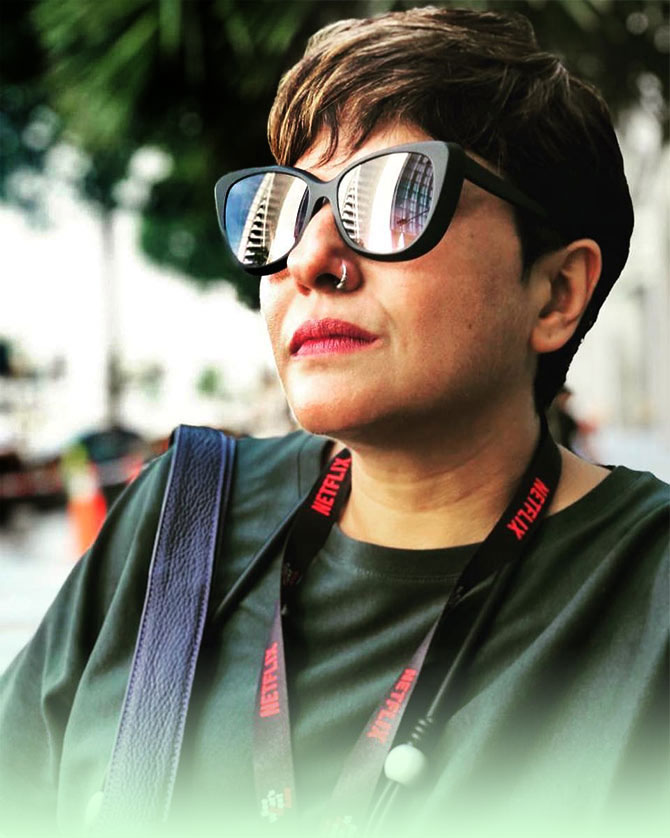
Leena Yadav says there have been instances where people have refused to work with her because she is a woman film-maker.
The director, who started her career as a film editor, recounts an incident where clients not only cast a doubt on her ability, but also asked her to prove her proficiency.
"I had lots of people refusing to work with me because I was a woman. I remember one incident... in those days, we used to work on high band (camera). These clients walked in and I was hired as a freelance editor. They looked at me and said, 'You are the editor?' I said 'I am'," she recalls.
"They said, 'Then you should know everything' and took off all the wires. He said, 'Then you should also know the wiring of this place'. And I did know the wiring, so I did it. Then I said, 'You know what? I don't want to work with you.' And I walked out," Leena recalls.
The director was speaking at the Calling The Shots: Women Directors in Indian Cinema session, moderated by Dhadak director Shashank Khaitan at IFFI.
Gauri Shinde and Meghna Gulzar were also a part of the conference.
After this incident, Leena says she stopped caring about people who practised discrimination as she believed it was "their problem", not hers.
She says she never had any issues with the actors she has worked.
"They know that I know their characters better than them," she says.
The director, who has worked with acting legends like Amitabh Bachchan and Ben Kingsley in Teen Patti, recounts an incident from the sets of the 2010 thriller.
"I remember Ben Kingsley said, 'Do you realise she knows the character better than we will ever know even after we finish the film? So I think we should just quietly listen to her'," she recalls.
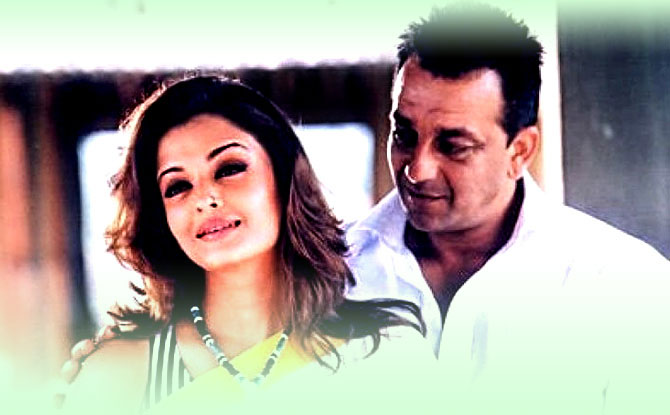
Leena shares how she thought her directorial debut Shabd in 2005 was not suited for stars.
The cast included Aishwarya Rai, Sanjay Dutt and Zayed Khan.
"I didn't think Shabd was a film for stars. It was a very independent kind of film. But my producer Pritish Nandy felt that we should. Then we went to narrate it to the stars and they agreed, which was a shock to me," she remembers.
"While making the film, I realised even the actors were not ready for a film like that. My characters were all grey and somewhere they (the actors) started getting panicky and started crying in the film to get sympathy," she recalls.
She got "an instant PhD into film industry politics" when the film bombed at the box office, she says.
"I was literally asked to leave town for various reasons... It was heart-breaking and I had never experienced anything like that. For six months, I could not function."
"It was like standing naked on the road and everyone was whipping me from all over the place. Then I kind of focused my mind to writing my second film, which I thought nobody would produce. I got to make my next. I realised that's what the journey is."
"I thought making the first film will be the toughest, but it gets tougher and tougher."
"The first film is the purest. Even you're not trying to cater or censor, it comes from a place of beautiful innocence that I'm constantly trying to go back to," says Leena, whose next film Rajma Chawal is slated to release on Netflix.
On the other hand, Gauri Shinde says she never thought it was a man's world and that she set to follow her dreams from the word 'go'.
"I took it for granted that if you have a dream, go ahead with it. All these questions happened after I had made a film. One doesn't really think of the path that you take, you just start your journey."
"You go there and the path just happens. Yes, it makes a difference when you see inspiring women, even men, are doing great work. It makes you think that even I can do this," Gauri says.
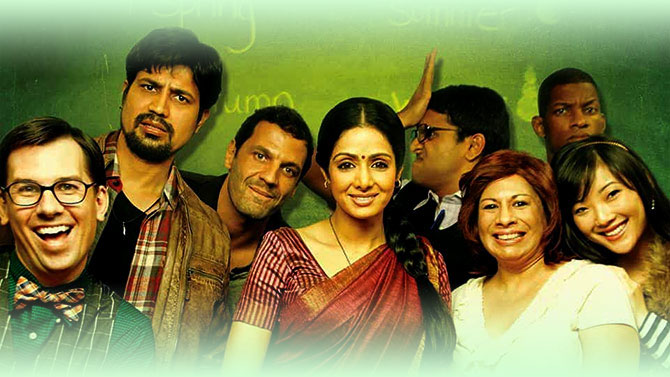
The adwoman-turned-film director debuted with English Vinglish, which served as Sridevi's comeback vehicle in 2012.
Gauri says she decided to co-produce the film with her husband, film-maker R Balki, as she did not want to surrender creative control.
The director says second guessing what the audience wants is a failed question.
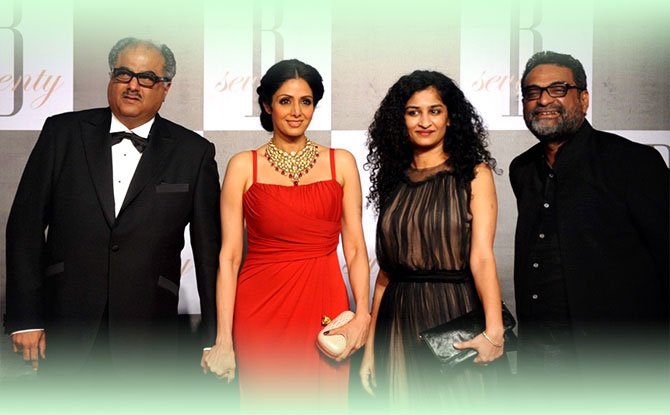
"A middle-class, middle-aged woman in a sari as a protagonist of a film was not very exciting for anybody. They said, 'Oh very nice, but is she not going to dance?' and all of that."
"I didn't want to bend or compromise on anything. That's why my husband and I decided to produce the film."
"The success of it, but more than that, the love I received reassured me that 'Yes, sticking to what I believe in and putting it out there, if you're really interested in that, you'll find some people interested in it'. You cannot second guess the audience. You cannot second guess what's working."
"'What does the audience want?' is a failed question. What do you want is the question," says Gauri.
The director worked with Shah Rukh Khan and Alia Bhatt in her second film Dear Zindagi, and says she was not star-struck once they start production.
"Once we are engaged to start the project, they are not stars anymore. They are co-workers, team members. I am not in awe of them. I have tremendous respect, but then it's about what we bring to the table together as a team," she says.
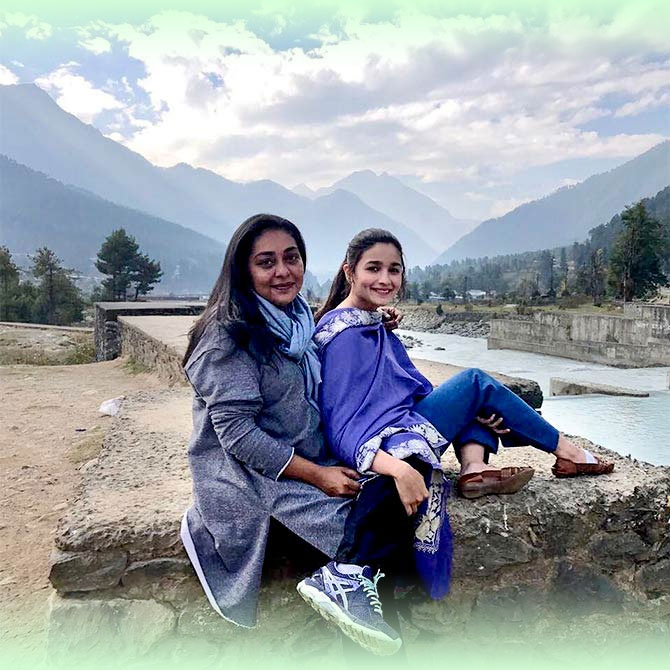
Meghna Gulzar says she is okay with being tagged as a "finicky" and "authoritative" director as she believes these qualities reflect in her films.
The film-maker was asked to comment on the perception that a male director exercising control is called a 'genius', while his female counterpart is branded 'crazy'.
"We are finicky, extremely detail-oriented, very authoritative and we like it like that. And that's what shows in our work, which you all see and like," says Meghna.
Meghna, who started her career with Fihaal in 2002, a social drama revolving around surrogacy, said she is a "living example that nepotism does not exist in the film industry".
"My first film failed miserably. It took me seven years to make my second film. It didn't matter what my last name was. It was only after my films succeeded that it became easier for me to make my fourth film," she says.
Fihaal featured Sushmita Sen and Tabu in lead roles, but producers said the men -- Sanjay Suri and Palash Sen -- had nothing to do.
After two years of struggle, the late producer Jhamu Sugandh decided to back the movie.
Meghna recalls, "He said, 'I don't need men to make this film. You get me two strong women and you just go for it'."
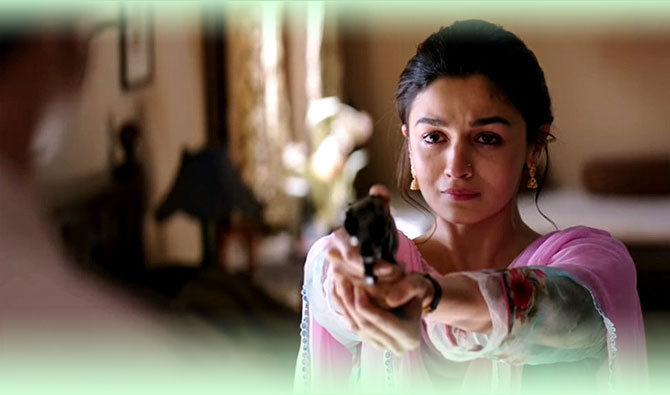
Meghana, whose last release Raazi crossed the Rs 100 crore mark at the box office, says things are getting better and they will continue to do so in future.
She says she wanted to make a dark comedy initially and was told that it was "tricky and it won't work".
"The conviction has to keep you afloat. You are second guessing your decisions and sensibility, wondering if you want to align with the mainstream sensibility in the world of the films you are making. It's not like I didn't try," she says.
"I did. I must have written four scenes, then I said, 'no, this is not me. I'm never going to be able to take it to the end. I will never be able to execute it'."
"The wait will get longer, but the only thing that will keep you going is the perseverance. You keep writing, creating and trying and hope that you will get lucky. But nothing is instant."
"Being thick-skinned helps," she says.
Meghana, who is celebrated poet-writer Gulzar's only child, says when her films did not do well, the reviews got personal.
"They (the reviewers) didn't stay only with the realm of the film. When you are reviewing a film, you are also reviewing the director, the actor, and it's very demoralising for a young person who's just starting out. So these are the pitfalls."
"But on the flipside, if things work and your film starts getting love, it's a whole new world of sunshine. Nothing ever matches up to it," she says.
Meghana's next project will be a film on Field Marshal Sam Manekshaw. She is also working on a film on acid attack survivor Laxmi Agarwal with Deepika Padukone.












 © 2025
© 2025